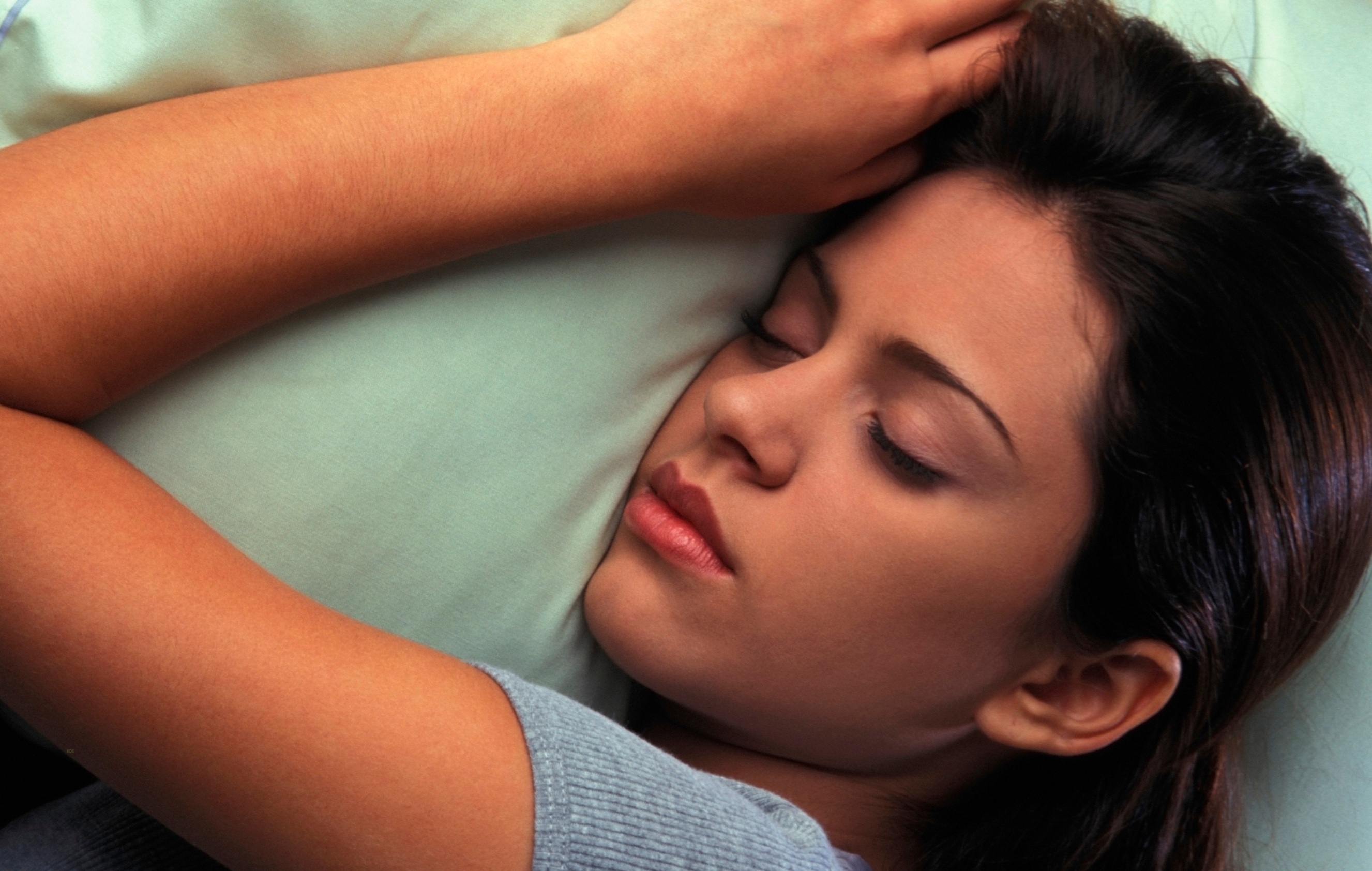Hypermobile Ehlers Danlos Syndrome and Hypermobility Spectrum Disorder: Sleep and Pain
Many of my patients with hypermobility related conditions report either having trouble sleeping or feeling unrested in the morning. While hypermobility related sleep disorders are covered in detail by Dr. Alan Pocinki here, I would like to delve a little deeper into the relationship between sleep and pain.
Many of my patients report pain is the major reason they have trouble sleeping. Unsurprisingly to anyone who has experienced chronic pain, research has shown that pain interferes with sleep quality 3,4. But, what you may not realise is that the reverse is also true, poor sleep quality increases pain 3,4.
To emphasize how impactful just one night of sleep deprivation can be on someone’s pain experience, I like to tell my patients about a study conducted by Dr. Sigrid Schuh-Hofer at Heidelberg University 5. Dr. Schuh-Hofer and her colleagues took 14 very healthy medical students, made sure they had a good night’s sleep, then measured how much pressing, pinpricking, heating, and cooling the students could take on the back of their hands until it hurt.
Even under ideal health circumstances, less sleep equals more pain and anxiety.
Subsequently, they had the students stay up all night chatting, playing games, and going for short walks, and then repeated the pain experiments the next morning. The night of lost sleep not only resulted in all the students experiencing a lower pain threshold for the various painful stimuli; they also scored higher on a measure of anxiety. In other words, even under ideal health circumstances, less sleep equals more pain and anxiety. If just one night of sleep deprivation in ideal circumstances increases pain sensitivity; imagine what happens after months or years of poor sleep under challenging life circumstances!
Actually, we don’t really have to imagine, because scientists have looked at different types of sleep disturbance and the consequence of accumulated sleep disturbance and found that the more sleep deprived someone is, the more ways their body finds to increase their pain 2. Further, researchers have also found that sleep deprivation increases our risk of migraines, impairs our ability to think, disturbs our mood, reduces our energy levels, and leaves us in a state of heightened inflammation 2. Sound familiar?
Given how impactful sleep quality is to your pain experience specifically and health in general, I’d like to make a recommendation. But before I make that recommendation I’d like to acknowledge that for a lot of my patients getting even one night of good sleep is not easy, and it is going to take more than one night of good sleep to undo the detrimental effects of sleep debt 1,2, so this recommendation might not suit everyone. With that said, here is my recommendation:
First, fill in the Preliminary Diagnostic Criteria for Fibromyalgia questionnaire here. I’m not suggesting you have fibromyalgia; it is just a useful tool to evaluate all the symptoms associated with severe sleep deprivation.
Secondly, try the following sleep hygiene recommendations for a whole month and on the last day of the month fill in the Preliminary Diagnostic Criteria for Fibromyalgia questionnaire again. Hopefully you see your score improve and sleep habits form part of your pain management strategy.
Good Sleep Hygiene
(Taken from Siengsukon et al. 2017, with a few minor additions)
- Go to sleep and wake up at the same time every day. This will help set your natural biological clock. Exposure to bright natural light when you first wake up is also helpful to set your natural biological clock. If you are shifting your bed time to a “more reasonable hour,” only adjust your bed time by 15 minutes per night.
- Use your bed for only sleep and sexual activity to help train your brain that if you are in your bed, you should be sleeping. Do not eat, work, or watch TV in bed. Do these activities outside of the bedroom. Leave bed if unable to fall asleep within 20 minutes and return when sleepy. If unable to leave the bed due to limited mobility or safety concerns, do something relaxing (i.e., relaxation techniques, meditation) until sleepy and able to fall to sleep.
- Develop a relaxing bedtime routine. This may include taking a warm bath, reading a book, meditation, or stretching. Avoid stimulating activities right before bedtime, including watching TV or discussing a stressful topic.
- Avoid moderate to vigorous exercise at least 2-3 hours before bedtime. Exercising immediately before bedtime stimulates your body and brain, making it hard to fall asleep.
- Avoid caffeinated foods and drinks at least 4 hours (but preferably 10 hours) before bedtime (includes most tea, coffee, chocolate, and soft drinks). Check the presence of caffeine in your drink or food by reading the label. Caffeine can cause difficulty falling asleep and increase the number of times you wake up during the night.
- Refrain from drinking alcohol or smoking at least 3 to 4 hours before bedtime. Although people may think drinking alcohol causes relaxation before bedtime it can actually increase the number of times you wake up during the night and can cause you to wake up early. Nicotine in cigarettes acts as a stimulant that can cause difficulty falling asleep.
- Do not take un-prescribed or over-the-counter sleeping pills.
- Avoid daytime napping so that you are tired at night and can fall asleep easily. If you feel you need to take a nap, limit the nap to 30 minutes and avoid napping in the evening.
- Make your sleeping environment comfortable and relaxing. This includes avoiding too much light and disturbing noises. Stop using light emitting electronics (ie, television, computer, smartphone) at least 30 minutes before bedtime as the blue light that is emitted can disrupt sleep by suppressing melatonin production. Use ear plugs, light-blocking curtains, or an eye mask if needed. Also, keep the temperature comfortable (about 18 degrees Celsius). Being too warm or cold may disturb your sleep. Also, use a comfortable and supportive pillow and mattress.
- Avoid eating a large meal or spicy food 2-3 hours before going to bed. Your digestive system slows down while you are sleeping, which can stimulate acid secretions that cause heartburn. A light snack may be helpful if you are hungry. Avoid excessive liquid 2-3 hours before bedtime.
- Dim the lights an hour before bed. Sleep in a dark, quiet room.
- Keep a pen and paper by your bed to write down any intrusive thoughts keeping you awake and then defer those thoughts to the morning. 13. If you find yourself awake through the night, try drawing your attention to your breath and slow your breath down to a four second inhale, two second hold, and six second exhale. Slow breathing for five minutes can help slow your heart rate and Dr. Pocinki mentions that rousing through the night is associated with an elevated heart rate.
I know this list sounds like a lot of steps. I recommend trying to implement one additional strategy per night and hopefully by the end of the month it will feel effortless. Sleep hygiene has certainly helped me and I hope it helps you.
Want to read more of Aaron’s articles on EDS, click here.
- Faraut, B., Boudjeltia, K. Z., Vanhamme, L., and Kerkhofs, M. (2012). Immune, inflammatory and cardiovascular consequences of sleep restriction and recovery. Sleep Med. Rev. 16, 137–149. doi: 10.1016/j.smrv.2011.05.001
- Kourbanova, K., Alexandre, C., & Latremoliere, A. (2022). Effect of sleep loss on pain-New conceptual and mechanistic avenues. Frontiers in neuroscience, 16, 1009902. https://doi.org/10.3389/fnins.2022.1009902
- Runge, N., Ahmed, I., Saueressig, T., Perea, J., Labie, C., Mairesse, O., Nijs, J., Malfliet, A., Verschueren, S., Van Assche, D., de Vlam, K., Van Waeyenberg, T., Van Haute, J., & De Baets, L. (2024). The bidirectional relationship between sleep problems and chronic musculoskeletal pain: a systematic review with meta-analysis. Pain, 10.1097/j.pain.0000000000003279. Advance online publication. https://doi.org/10.1097/j.pain.0000000000003279
- Santos, M., Gabani, F. L., de Andrade, S. M., Bizzozero-Peroni, B., Martínez-Vizcaíno, V., González, A. D., & Mesas, A. E. (2023). The bidirectional association between chronic musculoskeletal pain and sleep-related problems: a systematic review and meta-analysis. Rheumatology (Oxford, England), 62(9), 2951–2962. https://doi.org/10.1093/rheumatology/kead190
- Schuh-Hofer, S., Wodarski, R., Pfau, D. B., Caspani, O., Magerl, W., Kennedy, J. D., & Treede, R. D. (2013). One night of total sleep deprivation promotes a state of generalized hyperalgesia: a surrogate pain model to study the relationship of insomnia and pain. Pain, 154(9), 1613–1621. https://doi.org/10.1016/j.pain.2013.04.046
- Siengsukon, C. F., Al-Dughmi, M., & Stevens, S. (2017). Sleep Health Promotion: Practical Information for Physical Therapists. Physical therapy, 97(8), 826–836. https://doi.org/10.1093/ptj/pzx057




